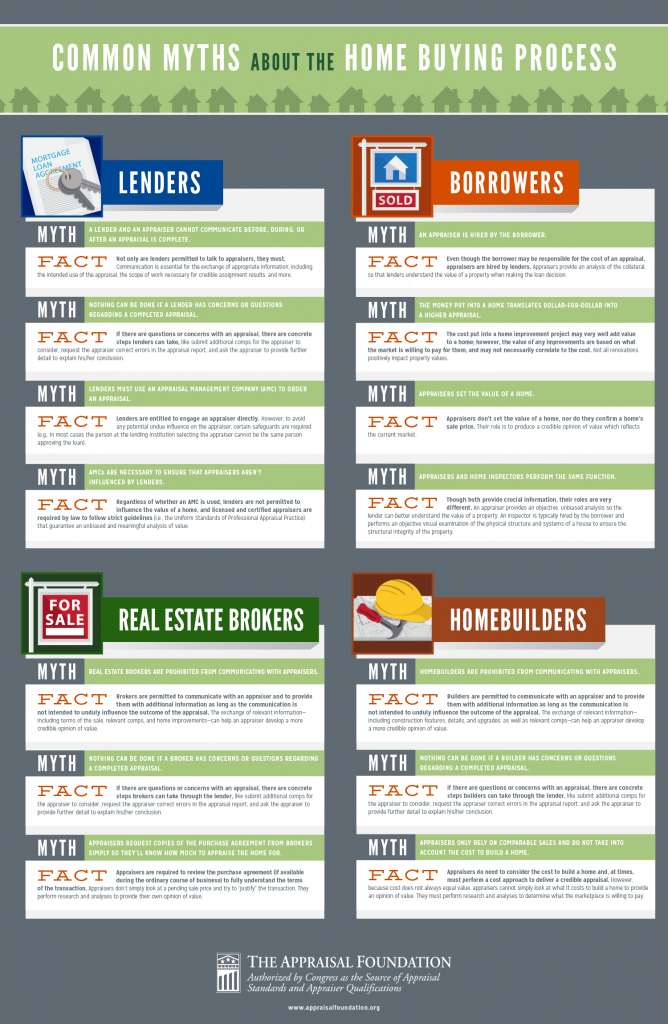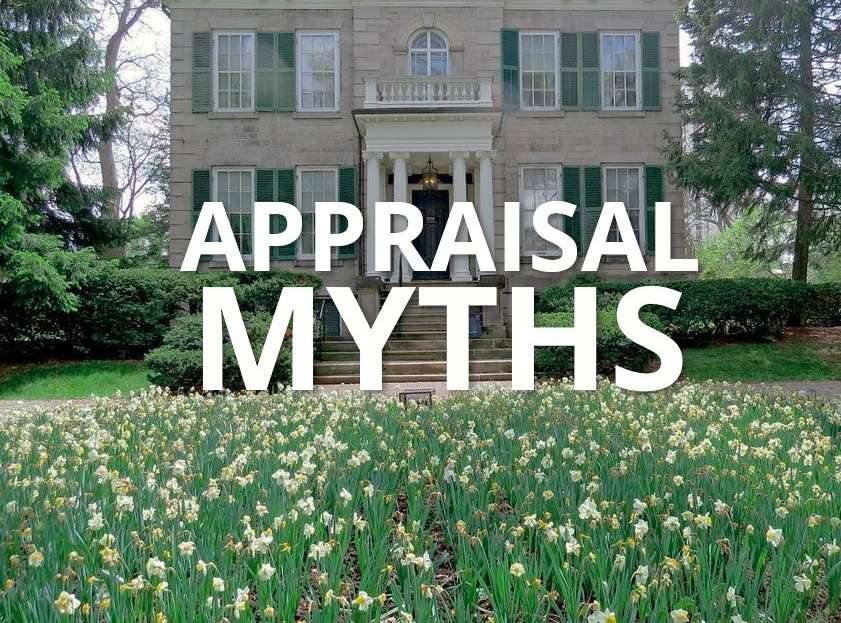This infographic (below) from The Appraisal Institute has been around for a couple of years now, but I came across it again recently and I think it’s still worth a look, especially if you’re new to the appraisal process.
(NOTE: The infographic refers to federal legislation in the US, and some of those laws may not be applicable in Canada, or in the Canadian province in which you live. If you’re in any doubt about what information applies to you, speak to your real estate broker, advisor, lender – or feel free to contact me.)
The big picture: You can ask questions
In my experience, one of the biggest frustrations that home vendors and purchasers have when it comes to the appraisal process is that they feel like they’re at the mercy of the lender or the appraiser, and aren’t ‘allowed’ to ask questions or express concerns if they think that something has been overlooked, or done incorrectly, or simply doesn’t make sense.
But that isn’t the case: As indicated in the infographic, purchasers and vendors are, in fact, not prohibited from asking questions or seeing valuations (except in some certain legal situations, but that’s not the norm). While no really good appraiser will give you a valuation while he’s standing on your front step in the middle of an inspection, there is no reason you can’t ask general questions (“We installed a heated driveway last year. Do you anticipate that will add to the overall valuation?”).
The appraiser may not be permitted to provide you with a copy of the final appraisal, because it belongs to the person/organization who paid for it, but you can definitely request a copy of the final appraisal from your lender.
Appraisers sometimes make mistakes.
It’s okay to request a re-do.
We’ve talked before about how appraisals involve both the hard numbers of data analysis as well as some qualitative interpretation of that data based on experience. Choosing a certified appraiser with a CRA or AACI designation is your assurance that the ‘interpretation’ piece meets rigorous standards and has had significant third-party validation.
However, even great appraisers make mistakes from time to time – every appraiser has ‘that one time’ in their career when the value they arrived at wasn’t as accurate as it should have been. So if you feel that the valuation of your home was significantly higher or lower than the recent sales of comparable properties in the immediate neighbourhood, you can request a second opinion, even it it’s just to put your mind at rest. (Depending on the lender and the situation, this may involve an additional fee – but it’s often a fair tradeoff for long-term peace of mind.)
Maintaining objectivity doesn’t preclude providing information.
An appraiser’s best work relies upon objectivity: The appraiser has to arrive at a value independently of what the vendor, purchaser, lender or anyone else may think. But that doesn’t mean that you aren’t entitled to know how appraisals work, or how the appraiser arrived at a particular valuation.
If you have any questions about your appraisal process, especially in Ontario, feel free to get in touch. We look forward to hearing from you!



